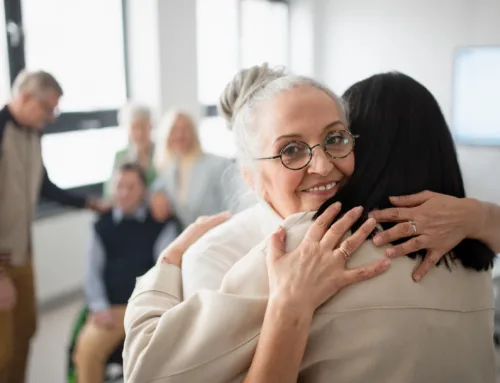Understanding Your Loved One’s PTSD Triggers: The Path to Supportive Care
For individuals suffering from post-traumatic stress disorder (PTSD), understanding and support from loved ones is a crucial part of their healing journey. PTSD, a mental health condition stemming from experiencing or witnessing a traumatic event, can have profound effects on an individual’s daily life. Recognizing triggers and providing appropriate support are key steps in helping your loved one manage PTSD.
Identifying PTSD Triggers
PTSD triggers can vary significantly from person to person. Triggers can be external, such as specific locations, sounds or visuals that remind them of the traumatic event, or internal, like certain thoughts or emotions. Common triggers include loud noises, crowded places, specific words, certain smells or anniversaries of the event. Being aware of PTSD triggers is the first step in providing support.
The Impact of Triggers
When triggered, individuals with PTSD may experience flashbacks, intense anxiety, panic attacks and even physical symptoms such as heart palpitations or shaking. Understanding that these reactions are involuntary and part of their condition can help you empathize with their experience.
Creating a Safe Environment
Creating safety for your loved one and ensuring they are comfortable is vital. This involves respecting their boundaries, avoiding known triggers and maintaining a calm and predictable environment. It’s important to listen and keep an open mind, as the perception of safety for someone with PTSD might look different from your own.
Communication is Key
Open and non-judgmental communication is essential. Encourage your loved one to express themselves when they feel comfortable sharing about their triggers and experiences. However, respect their privacy and boundaries; never pressure them into sharing more than they are ready to.
Educate Yourself
Educating yourself about PTSD is crucial for understanding what your loved one is going through. This knowledge can prepare you for their reactions to triggers and provide insight into how best to support them. There are many resources available online, including articles, support groups and educational videos.
Supporting Professional Help
If your loved one is struggling with PTSD, encourage them to seek professional help. PTSD is a complex condition that often requires the assistance of mental health professionals. Therapies like Cognitive Behavioral Therapy (CBT), Eye Movement Desensitization and Reprocessing (EMDR) and medication can be effective in managing PTSD symptoms.
Being a Supportive Partner
Your support can make a significant difference in your loved one’s journey to recovery. This can include being patient, listening when they need to talk and understanding when they need space. It’s also important to take care of yourself, as you can be a better support system when you are mentally and emotionally healthy.
Understanding your loved one’s PTSD triggers and learning how to support them can have a significant positive impact on their healing process. By being empathetic, maintaining open communication and encouraging professional help, you can support your loved one with PTSD as they navigate their path to recovery.






